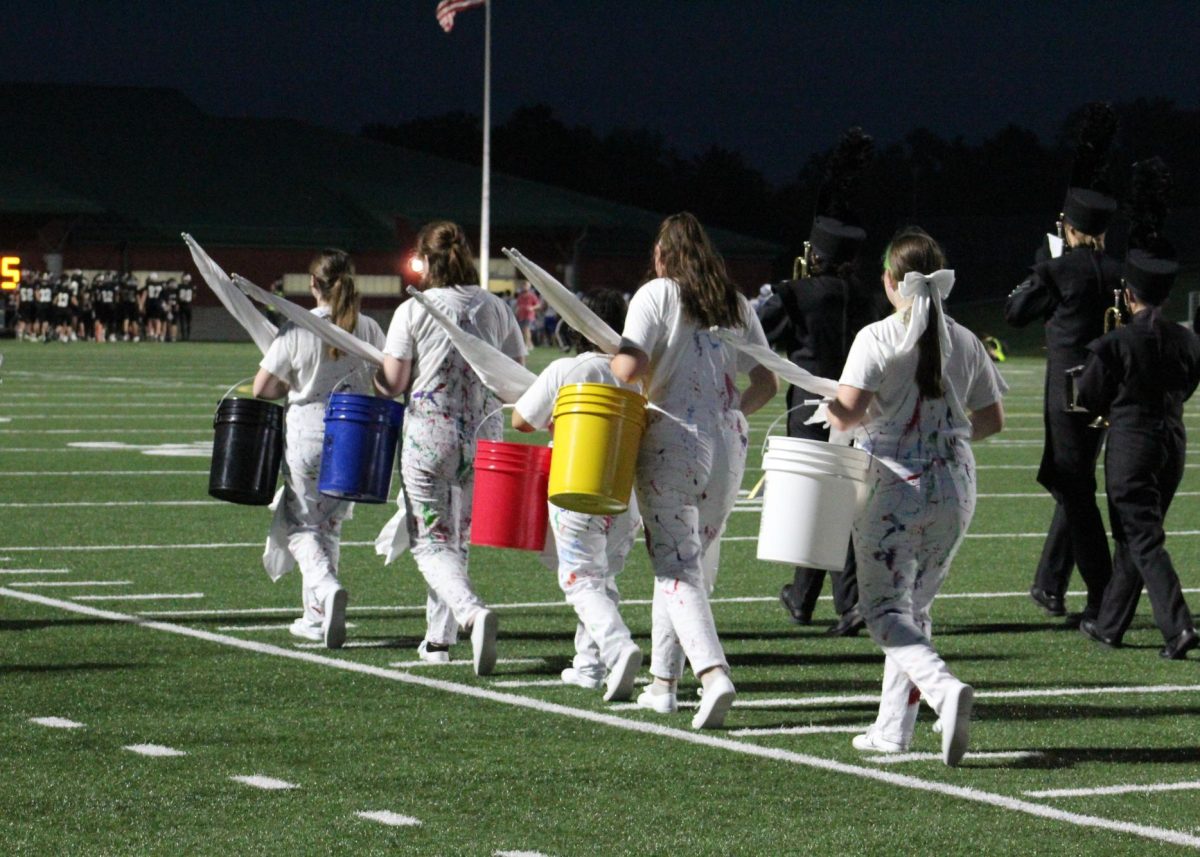Student leadership: When students lead their peers to build a better future, it shows
March 2, 2020
The median age for the president of the United States is 55 years old. The average age of a Fortune 500 company CEO is 58 years old. The average NFL head coach is 51 years old. Frequently, leaders are considered to be adults. The misconception can sometimes be made that you have to be an adult in order to be a leader and make a difference. However, millions of high school students across the U.S. are negating this misconception. Many student leaders are rising up and making a difference within their communities. At Lincoln Southeast High School, these student leaders come from several different high school experiences. Whether that be an officer for a club, member of the SHIELD Leadership team or a team captain, student leaders are forging a future and bettering their communities in more ways than one.
Every student leader looks different. Every one of them has different experiences, strengths and abilities that separate them from the crowd.
“[Leadership] is a mixture of servanthood and humility, but also confidence,” Kelsey Lorimer, an LSE counselor and facilitator for the LSE Leadership Cadre, said. “Student leadership is about doing the right thing even when it is hard, making difficult decisions and putting others before you.”
These decisions to put others before yourself are tough. Leaders do this all of the time.
If leadership roles are often thought of as having more work, why do some students step into them? What are they getting from it? For many, they are obtaining leadership experience and developing their passions.
Several students may use these experiences as resume boosters. Some use these experiences to gain knowledge and understanding of the real world.
“I think a lot of the things that we learn in high school become things we tap into later in life, and high school is kind of a microcosm of the real world,” Lorimer said.
Harvard would agree.
According to a study conducted by Harvard Business Review, students that were leaders within their high schools earned an average of 33 percent more dollars in their careers than students who did not have any prior leadership experience. This study expands on the effects of student leadership and says student leaders often score higher on tests and put more hours into their projects and assignments than students not in a leadership position.
Harvard attributes its findings to the Rosenthal Effect, which is the idea that students who are selected for a leadership role tend to perform better so they don’t disappoint the ones who appointed them to said role. There are clear long-term benefits for student leaders.
“If you’re able to learn these lessons within the confines of high school, it is going to be a lot easier to apply them on a larger scale and it’s going to become more second-nature,” Lorimer said.
Another common misconception is that student leaders can only be leaders if they have a title or position. However, both positional leaders and followers are important for a group to function.
“If no one is following you, you’re not a leader,” Lorimer said. When leading in a group, it is essential that people are following the leader, otherwise nothing would be accomplished. For example, you can’t have a safe flight from New York City to Los Angeles if everyone was the captain of the airplane. You also need the flight attendants and other crew members to help the flight run efficiently. Every person is fully capable of being a leader and gaining followers and respect from others without a title or position. However, it takes time to gain the followers you need to be an effective leader.
Dustin McKissen is a communications and leadership expert. He describes that leadership is sometimes a journey someone must take alone. For example, Dr. Martin Luther King Jr. didn’t have a large following when he began his fight for equality. Through courage, risk, influence and bravery, King gained followers to aid him in his fight for justice. Often times, it may be difficult for a high school student to immediately gain a following. For example, in 2018, seniors at LSE planned a school walkout to bring about awareness for gun violence in schools. Originally, the group started off with just a group of friends. The one person planning the event had to lead on their own in the beginning. Eventually, it gained momentum and became a large event that a lot of students were aware of. Everyday, high school students are able to lead on their own and make decisions. In every situation, there are actions or choices that one can make in order to be a leader even when not holding a title.
Jackson Miller (9) is a member of the SHIELD Leadership team. He said you can be a leader by, “Setting a good example and just doing the right thing.”
LSE varsity cheer captain Sydney Mitchell (12) said anyone can be a leader by, “Being that stable rock in the group and demonstrating what everyone should be doing.”
Lydia Kingery is the vice president of the Drama officers. She said, “You can just be respectful and responsible and show kindness towards everyone.”
These student leaders all shared a similar perspective: it is possible to be a leader while being a follower. Taking these small steps allow any student to become a leader even when they don’t have a position.
“I think a lot of students don’t necessarily recognize what they are capable of,” Lorimer said.
So go join that club. Run for that officer position. Connect within your school and your community. Apply for that organization. Endless opportunities are there, so go take them. Regardless of where you end up, Lorimer said, “Being a leader is about showing up every day and giving your full effort.”










